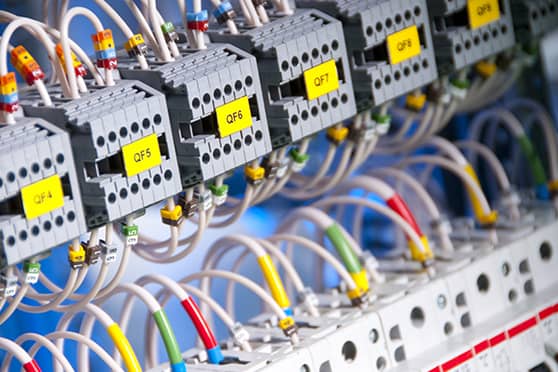Summary
Cracking JEE Advanced and state joint entrance exams are the best way to study Electrical Engineering
Jadavpur University, IIT Kharagpur, IIEST Shibpur and NIT Durgapur offer both bachelor’s and master’s courses
With the world changing at breakneck speed, new breakthroughs in technology have ushered in a new era where electrical engineers are in high demand. Electrical Engineering serves as the foundation for a digital revolution that’s just around the corner. By going for this Engineering discipline you can secure a great career and leave a mark in the world of technology.
What is Electrical Engineering
Electrical Engineering is concerned with the technology of electricity. As an electric engineer, you’ll design, develop and maintain electrical systems and equipment. Physics, Mechanics, Optics, and Maths are the main components of this technical branch of applied science.
The field of Electrical Engineering has branched out into multiple specialisations like power generation and transmission systems, motors and control systems.
Studying Electrical Engineering:
- You need to clear your Class XII board exams or an equivalent exam with Physics, Chemistry and Maths as compulsory subjects. You need at least 75% marks for admission to IITs, NITs and GFTIs.
- You need to clear JEE Mains, conducted by the National Testing Agency (NTA), for admission to NITs, CFTIs and other engineering institutes.
- You need to clear JEE Advanced to get into IITs and IIT (ISM) Dhanbad. To be eligible for JEE Advanced, you need to be among the top 2,50,000 successful candidates (across all categories) in the BE/BTech paper of JEE Mains.
- You can get an Electrical Engineering degree by clearing any of the state joint entrance exams.
- For a master’s degree in Electrical Engineering, you need to clear GATE (Graduate Aptitude Test in Engineering).
Some top institutes to study Electrical Engineering:
IIT Kharagpur, West Bengal
Course: BTech in Electrical Engineering.
- Duration: Four years.
- Admission: Depends on your rank in JEE Advanced.
Course: MTech in Electrical Engineering.
Jadavpur University, Kolkata, West Bengal
Course: BE in Electrical Engineering.
- Duration: Four years.
- Admission: Depends on your rank in the West Bengal Joint Entrance Examination (WBJEE).
Course: ME in Electrical Engineering.
Indian Institute of Engineering Science and Technology (IIEST), Shibpur, West Bengal
Course: BTech in Electrical Engineering.
- Duration: Four years.
- Admission: Depends on your rank in JEE Mains.
Course: MTech in Electrical Engineering.
- Duration: Two years.
- Admission: Depends on your GATE rank.
Course: Dual Degree (BTech—M. Tech.)
National Institute of Technology, Durgapur, West Bengal
Course: BTech in Electrical Engineering.
- Duration: Four years.
- Admission: Depends on your rank in JEE Mains.
Course: MTech in Electrical Engineering.
Delhi Technological University, Delhi
Course: BTech in Electrical Engineering.
- Duration: Four years.
- Admission: Depends on your rank in JEE Mains.
Course: MTech in Electrical Engineering.
National Institute of Technology, Rourkela, Odisha
Course: BTech in Electrical Engineering.
- Duration: Four years.
- Admission: Depends on your rank in JEE Mains.
Course: MTech in Electrical Engineering.
Job roles:
-
Operations manager: They look after the manufacturing process of electronic systems and equipment. They oversee device maintenance and updates.
-
Electrical engineer: They create electrical circuits, systems and gadgets. It is also their responsibility to troubleshoot.
-
Product design engineer: They design and develop new electrical items. They stay involved in the study, creation and development of such items.
-
Electrical design engineer: They design and manufacture electrical systems and devices by factoring in their cost, dependability, quality,and security.
-
Instrumentation engineer: They are involved in the research, development and creation of novel electrical systems and equipment for regulating and screening industrial operations.
-
Power engineer: They are in charge of producing, transmitting and using electricity. They also maintain electrical devices such as electric motors and generators.
Last updated on 06 Apr 2022

